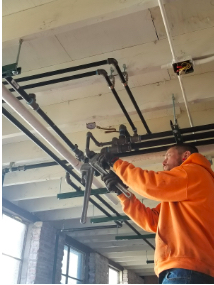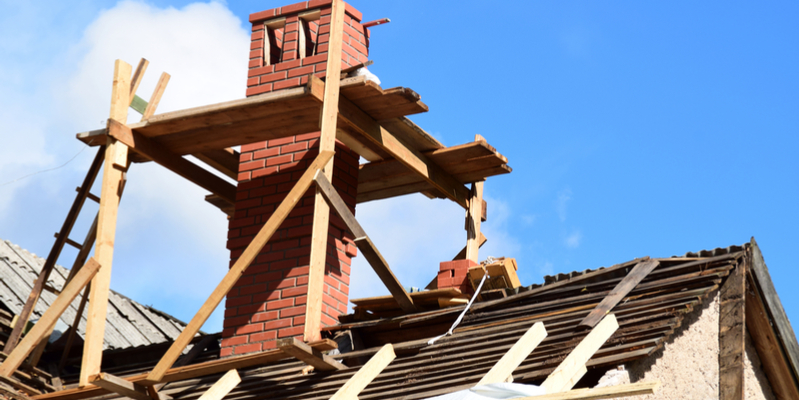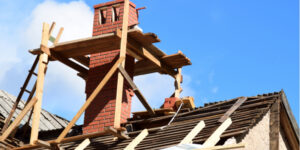 Residential Local Law 152 Plumbers work on plumbing mechanisms inside homes. They are typically licensed to work on all aspects of home plumbing systems, including new construction and maintenance. To get a residential plumber license, one must pass an exam and provide signed, notarized affidavits from master plumbers attesting to their work experience.
Residential Local Law 152 Plumbers work on plumbing mechanisms inside homes. They are typically licensed to work on all aspects of home plumbing systems, including new construction and maintenance. To get a residential plumber license, one must pass an exam and provide signed, notarized affidavits from master plumbers attesting to their work experience.
Plumbing installation is one of the most important services that plumbers offer. This involves setting up new pipes and fixtures for homes or businesses. The process includes determining where the pipes will go, measuring the space, and choosing the right materials. For example, copper is a durable material that offers excellent insulation and protection against corrosion. However, it is also more expensive than other options. Plumbers can help you decide what type of pipes to install in your home or business based on your needs and budget.
In addition to installing new plumbing, plumbers can also repair existing pipes and fixtures. This can include fixing leaks or clogs, replacing worn out parts, and making sure that all of the plumbing is connected properly. It’s important to choose a plumber with experience in plumbing repairs, as they will be able to diagnose problems and fix them quickly and efficiently.
Another service that plumbers provide is drain cleaning. This is an essential service that can help prevent serious clogs and water damage in your home or business. Plumbers use special tools to clear out the pipes and ensure that they are free of debris. They can also clean out your sewer line and prevent blockages. This is an essential service for homeowners, as it can prevent costly repairs in the future.
Residential plumbers can also provide installation services for heating systems and water heaters. This is a great option for homeowners who want to upgrade their home’s energy efficiency. These professionals can also install rainwater collection systems and water filters.
In some cases, plumbing installations may require a permit. This is especially true if the work is done in an older home or on a large commercial site. It’s a good idea to check with your local government to find out what the rules are before hiring a plumber for a major installation project.
Plumbing issues can occur at any time, and they can be extremely disruptive to your daily life. Luckily, there are plumbers available around the clock to assist you with your plumbing needs. When looking for a plumber, be sure to choose one that is licensed and insured. This will ensure that they are qualified to perform the job and that you are protected in case something goes wrong during the installation process.
Plumbing Repair
When home plumbing systems start malfunctioning, it is important to call a plumber as soon as possible. This will prevent the problem from getting worse and help you save money on repairs. Some common issues that residential plumbers repair include clogged drains, water leaks, and broken toilets.
Many people attempt to fix their own plumbing problems, but this is typically a bad idea. Without proper training and experience, it is easy to make costly mistakes that can lead to more serious issues down the road. Residential plumbers have the tools and knowledge necessary to fix your plumbing problems quickly and efficiently.
In addition to fixing leaks and clogs, residential plumbers can also install new fixtures and replace old ones. This includes faucets, toilets, sinks, bathtubs, and showers. Plumbing installations require special skills and knowledge to ensure that the pipes are connected properly and that all water fixtures are working correctly. In some cases, installing a new fixture may be more cost-effective than repairing an existing one.
Another service that residential plumbers offer is sewer line repair and cleaning. Sewer lines can become damaged by tree roots, frozen water, or a number of other factors. These lines are responsible for carrying waste from your home to the sewage system. When these lines get damaged, it can cause a lot of problems, including sewage backups and messy cleanup.
Lastly, residential plumbers can perform annual maintenance on your plumbing system. This includes checking for any leaks and clogs, as well as testing your water pressure. These services can help you save money on your energy bill by identifying and addressing any issues before they become serious.
When it comes to plumbing, every property owner has different needs. It is important to find a plumber that can meet your specific requirements, such as shutting off the water supply for a job or providing emergency repairs. Also, make sure that the plumber you choose is licensed and insured. This will protect you in the event of an accident or injury while the plumber is on your property.
Drain Cleaning
A drain cleaning company, such as ARS Rescue Rooter, is a professional service that unclogs pipes and cleans away waste materials. This helps reduce odors, prevents water damage, and prolongs the life of your plumbing system. These services are available for sinks, tubs, showers, toilets, floor drains, and sewer lines. They also offer drain and sewer line video inspections to locate the source of a problem.
Your kitchen, bathroom, and laundry drains all converge into the main sewer line at the bottom of your home, so clogged or blocked drains can affect the entire plumbing system. Debris can build up in your drain pipes from food scraps, soap scum, hair, and other materials that can lead to slow drainage, blockages, or even sewage backups. It is recommended that homeowners get their drains cleaned at least once a year, and more frequently in commercial buildings or residences with higher usage levels.
Signs of a blocked or slow-draining drain include unexplained puddles in the basement, yard, or other areas of the property, gurgling sounds when water is being used, and foul smells coming from sinks or toilets. A professional plumber can use a wide variety of tools and techniques to clear the clog and restore normal water flow.
Some clogs may be easily cleared with a plunger or snake auger, but other types of obstructions require more involved methods. A qualified plumber will know how to use a high-powered vacuum cleaner or hydro jetting, which uses water pressure to clean out the pipes. Some plumbers also use drain maintainers, which are non-caustic, biodegradable products that contain bacteria that consume organic material and turn it into carbon dioxide and water.
Chemical drain cleaners are the harshest type of product, and they should only be used in extreme cases to avoid damaging your pipes and plumbing components. If you need to use a chemical drain cleaner, read the label carefully and follow the manufacturer’s instructions. You should never mix different products or use drain cleaners that are not intended for your plumbing system. Lynn Redmile is a product reviews analyst for the Good Housekeeping Institute, where she has been evaluating beauty, textiles, home, and pet products since 2012. When she’s not managing test results and data analysis, you can find her taking pictures of jazz musicians or traveling to experience new cultures and cuisines.
Irrigation
Residential plumbers also work on irrigation systems, which deliver water to lawns and other plants. They can install, repair, or replace the pipes that carry this water as well as the fixtures and appliances that use it. This falls under preventative home maintenance and can help keep a house’s landscaping in good shape as well as save on water bills.
Some plumbers choose to specialize in either commercial or residential work, but others prefer to do both types of jobs. The difference between the two is that commercial plumbing is more complex and requires a higher level of skill, but it also offers better pay. Residential plumbing, on the other hand, is more straightforward and often involves less complicated issues.
In order to become a licensed plumber, an individual must complete an apprenticeship program or a vocational school training course and pass a state exam. This training typically combines paid on-the-job experience with classroom instruction. Some states, such as New York, require plumbers to be licensed in order to work legally.
After obtaining a license, plumbers can take on a wide range of responsibilities and duties. Some common job tasks include reading blueprints and building specifications, installing piping, inspecting drainage systems, and rerouting existing piping. They may also be required to test drain lines and sewer systems for leaks or other problems. Additionally, a plumber can be expected to repair or install kitchen and bathroom fixtures and appliances such as toilets, sinks, and bathtubs.
Depending on the type of plumbing system in a house, it may be necessary to reroute existing piping. This can happen when a homeowner adds an extension to their home, for example. In this case, the plumber will need to move the existing pipes to accommodate the new extension. A residential plumber can also help with general home improvement projects by repairing or installing appliances such as refrigerators, dishwashers, ovens, and heating and cooling systems.
Leaky pipes and toilets are a common problem in many homes, but determining the cause of the issue can be challenging. For instance, a homeowner might notice a small leak in their shower, but it could actually be caused by a broken pipe in the ceiling below. Residential plumbers are trained to spot these issues and can resolve them quickly before they worsen.


